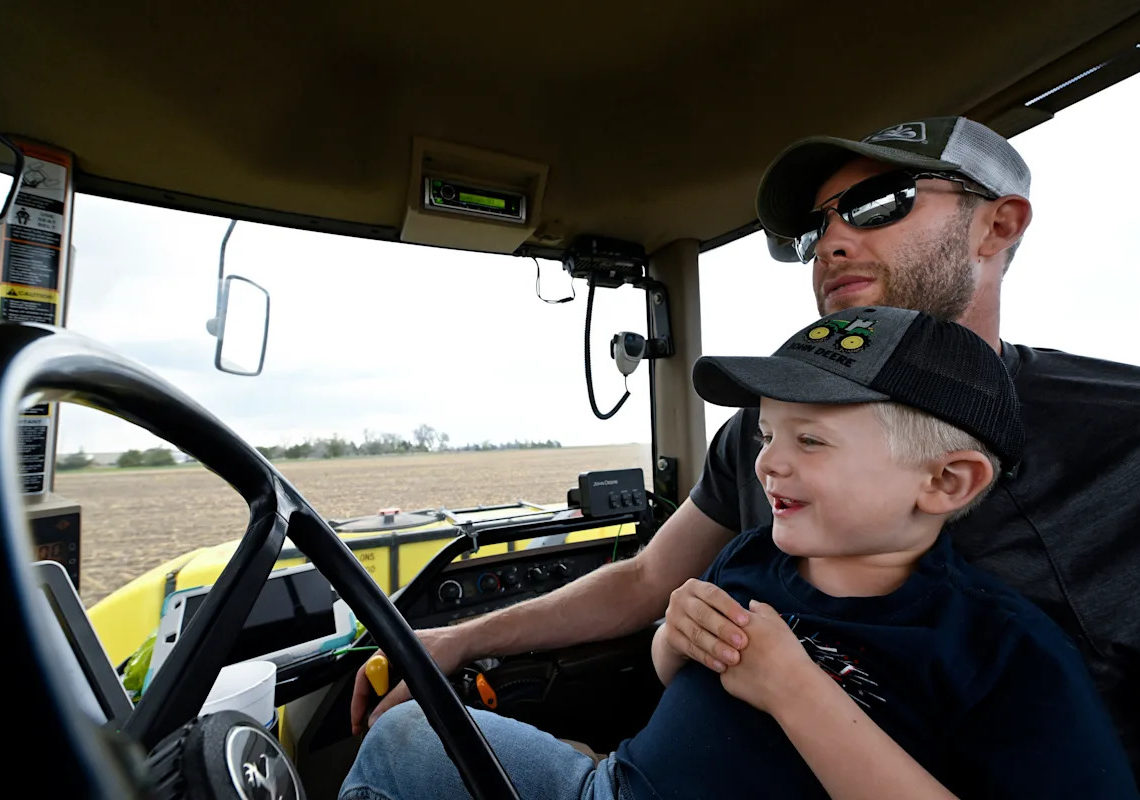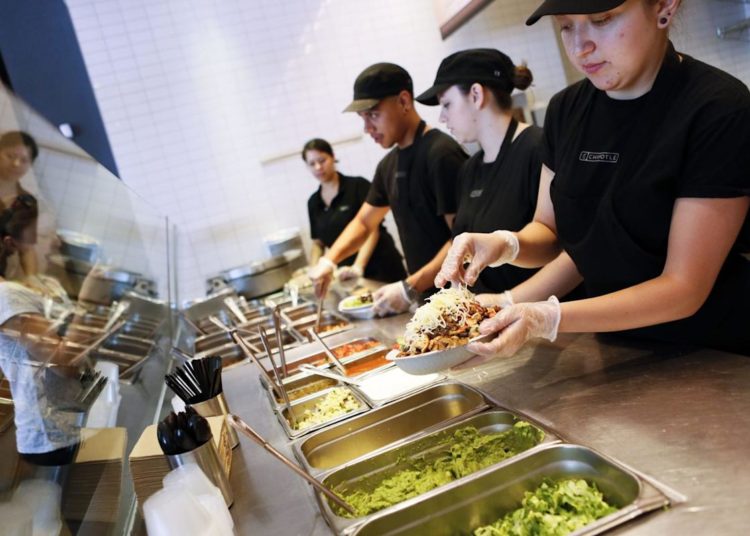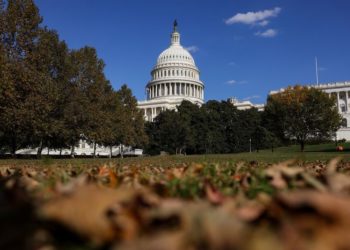He had begun to doubt the call would ever come, but as JJ Ficken arrived one afternoon last month at a meeting for the local farming cooperative in eastern Colorado, his phone buzzed. An acronym he knew well appeared on the screen: “USDA.”
JJ’s heart thudded in his ears.
Four days earlier, The Washington Post had published a story about a federal grant program that promised JJ $200,000, spread across two years, to cover the cost of a seasonal farmhand from Latin America. In January, President Donald Trump suspended billions in agriculture funding, and even when a court ordered the money unfrozen, it was disbursed at a trickle, leaving desperate farmers fearful the administration would kill the program before it reimbursed them. JJ, 37, endured months of uncertainty as he took on tens of thousands of dollars in debt to bring in a 24-year-old stranger from Guatemala.
Now, in the phone call on June 25, an empathetic staffer from the U.S. Agriculture Department told him that, after The Post’s story, she had been directed to pay him as fast as possible. “She was told to get it done,” he said, and two days later, the first $100,000 appeared in his bank account.
JJ realized he’d been prioritized, and he worried for the dozens of other farmers in the program who had also waited weeks or months to receive critical reimbursements. Now, in the aftermath of The Post’s story, the Agriculture Department has moved to expedite all the payments.
The process has lagged, at least in part, because the Trump administration decimated the agency’s workforce, reducing its staff by more than 15,000. Earlier this month, it began recruiting internal specialists to disburse the grant money more quickly, according to current and former department officials as well as records obtained by The Post.
“The program has been processing payments since May, and they will continue to be processed as required documents are reviewed and subsequently verified,” an agency spokesperson told The Post in an emailed statement, acknowledging that it “has reallocated resources within the department” to assist the grant program.
The agency did not respond to questions about how many additional staff members were being brought on, the precise number of farmers waiting for their grant money or how quickly they would be paid.
The Agriculture Department unveiled the Farm Labor Stabilization and Protection Pilot Program in 2023 to address a critical shortage of labor and stem the flow of undocumented immigrants. With the grant, farms could bring on temporary foreign workers through the H-2A visa program and, in exchange, provide good working conditions. JJ signed up along with 140 other farmers across the country.
The Agriculture Department also declined to answer questions about the program’s future or whether it might still be canceled, but the current and former agency officials, who spoke on the condition of anonymity because they feared reprisal, said the decision to bring on additional staff suggests the grant will continue through 2026, as the government originally pledged. That would provide farmers the financial support to bring back foreign workers for a second season.
Because the grant was created under President Joe Biden, Trump’s political appointees may never officially support it, according to a former agency official close to the program.
“They want to save face,” the person said, so instead: “They’re turning a blind eye to it.”
The White House did not respond to specific questions about the program, but a spokesperson defended Trump.
“As President Trump has said, the USA will protect our farmers, and this President cares deeply about strengthening America’s agriculture industry,” Anna Kelly wrote in a statement. “After four years of regulatory uncertainty, trade imbalances, and radical environmental policies under Joe Biden, President Trump is already delivering relief by negotiating better trade deals, unleashing American energy, and cutting ten regulations for every new regulation. Less DC-centered bureaucracy means greater efficiency and better services for our farmers, and the USDA’s reorganization will bring the federal workforce to the farmers they serve.”
In Texas, Diana Padilla, who grows produce, said she’s waited since March for the first half of her $400,000.
“It’s killing us,” she said.
With the promise of the grant and eight workers from Guatemala, Padilla and her husband expanded their vegetable crop from 2 acres to 15.
Floods destroyed much of what they planted, forcing Padilla, 61, to send the workers home early. Their salaries cost $5,000 a week, and the Padillas had already zeroed out their savings to cover $220,000 in expenses.
Her next planting season begins in September, but without the money she’s owed, Padilla can’t bring the workers back.
In March, Henry Bennett, a sixth-generation farmer from Delaware who helped organize an online chat group for farmers awarded the grant, wrote to the department arguing why Trump should back the program.
“The FLSP aligns with several key priorities of the current administration, including securing the domestic food supply, reducing illegal immigration, and increasing farmworker retention,” the 35-year-old wrote, adding that, without the $100,000 grant, his family farm could face bankruptcy.
Torrential rains and extreme heat cost Bennett Orchards about a third of this year’s blueberry harvest, exacerbating his anxiety.
Dozens of farmers The Post interviewed, including many who said they voted for Trump, have been confounded by his administration’s unwillingness to endorse a program so popular among key constituents. Few threats to their livelihoods are more existential than the chronic labor shortage. At least a dozen American workers quit on Bennett before he turned to H-2A. Since 2008, Padilla estimated she’d lost nearly 50, costing her an average of $20,000 a year in wasted training.
They and many other farmers in the program have raved about their migrant workers, whom it was also designed to benefit and protect. H-2A laborers – who can be hired only after the jobs are advertised to U.S. citizens – have at times been abused and exploited by employers, but farmers in the program must agree to provide quality conditions and arrange for their workers to attend “know your rights and resources” training.
In April, the Agriculture Department canceled research that would measure whether the program helped farmers or curbed illegal immigration. In a letter to researchers, the agency alleged, without evidence, that their efforts supported “DEI,” a reference to “diversity, equity and inclusion” initiatives that Trump’s administration has sought to eradicate.
In June, Michael Marsh, president of the National Council of Agricultural Employers, asked the agency to reconsider, calling its decision an “error.”
At the time the research was canceled, JJ didn’t know what DEI stood for, much less what it had come to represent. He’d applied for the grant because it offered an opportunity that could transform his family’s future in Kirk, Colorado, a town of 61. With the extra worker, and money to cover the added costs, JJ could handle more jobs and invest in his own equipment. Then Trump froze his funding and his American farmhand quit, and suddenly, for JJ to operate, the stranger from Guatemala had to work out.
Otto Vargas, who grew up on his father’s 40-acre farm, had long prayed for a job in the United States. In Kirk, he said yes to every request and worked to learn the complex farming equipment that was nothing like what he’d operated back home. JJ, who covered Otto’s rent on a tidy single-wide, invited him over for regular dinners with JJ’s wife, Kassidee, and their two kids.
JJ learned that Otto had applied for residency in the United States in 2023, the same year he married a neighbor from Guatemala who now lives legally in Rhode Island. Otto learned that JJ’s life was complicated, too. Kassidee worked as a dental hygienist, and because their daughter, who is 7, had recently been diagnosed with Type 1 diabetes, the couple home-schooled both children. On Tuesdays, JJ looked after the kids by himself, towing them along while his wife worked at her clinic.
One day, on a long drive, Otto told him he wanted to get so good at his job that JJ could take Tuesdays off.
“I was blown away,” JJ said.
They bonded over faith and family, hard work, and genuine interest in each other’s cultures. On a road trip, JJ introduced Otto to banana splits from Dairy Queen, and on a late evening in the fields, Otto taught JJ how to say “feliz noche” – “happy night.”
The Post’s story about them drew more than 5,100 comments, many dismissing JJ’s struggles because he’d voted for Trump. One reader sent an anonymous letter to his home, asserting that the president’s supporters “DESERVE EVERY BAD BREAK YOU GET.”
He received notes of encouragement, too, from admirers in Minnesota and North Carolina and Hawaii.
“You are a hero for doing what you believe in, farming to feed us, taking care of your family, providing work for those who want it,” one person wrote him. “I am NOT a Trump fan, but simply admire your grit.”
For Otto’s 25th birthday in June, JJ had intended to take him to a soccer match in Denver, but Otto asked to visit his wife in Rhode Island instead. Before he left, JJ gave him an extra $200 to take his wife on a date. Otto, eyes welling, resisted the offer, but JJ insisted.
Otto returned with gifts of Guatemalan alcohol (rum? JJ thought) and a pair of Nike baseball caps, one embroidered with JJ’s name and the other with his son’s.
Otto’s most critical test came soon after, as hay baling season approached its peak. JJ owned two hay stackers, and without his American worker, Otto had to learn to manage one machine on his own. He did, and in a 15-day stretch, Otto worked 98 hours of overtime, earning nearly $4,000. He’d already begun to send money home.
Not everything has gone the way JJ hoped, because that’s farming. One evening when the two men were working 90 miles east of Kirk, a hailstorm swept through town. Kassidee and the kids huddled in their basement as chunks of ice tore into their roof and mangled the corn JJ had planted.
With insurance, JJ figured he might break even, but the calamity didn’t panic him. The first half of the grant money had arrived, and by then, he realized what he’d found in Otto.
Even if the Trump administration cancels the grant after Otto flies home in the fall, JJ has made up his mind about next year.
“I’ll bring him back until he don’t want to come no more,” JJ said, “with or without the money.”
Related Content
Pets are being abandoned, surrendered amid Trump’s immigration crackdown
The Post exposed this farmer’s struggle. Then the USDA called.
Kamala Harris will not run for California governor, opening door for 2028 run
The post The Post exposed this farmer’s struggle. Then the USDA called. appeared first on Washington Post.




